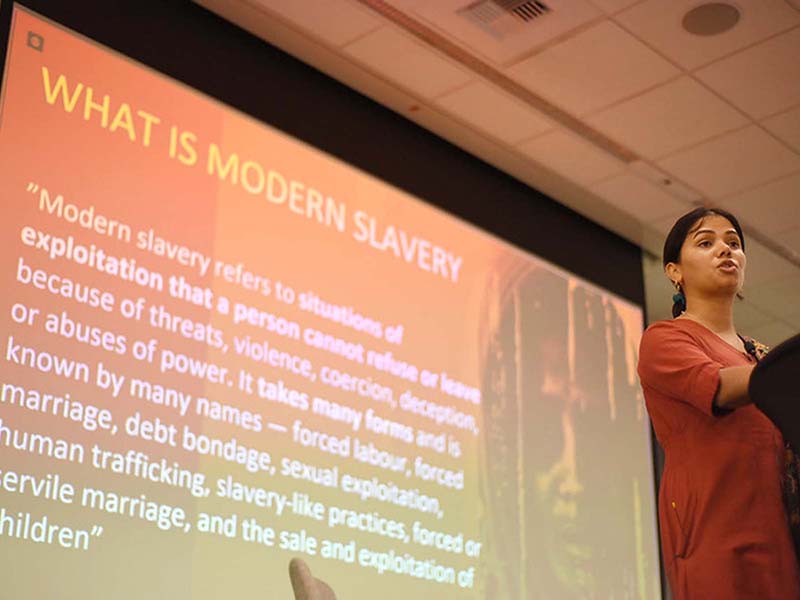
Environmental, social, and governance (ESG) investing has seen a sharp increase in recent years, with 10 percent of worldwide fund assets currently invested in ESG-labeled funds and ESG assets on track to exceed US$50 trillion by 2025. The rise of ESG represents progress on global sustainability action, and it serves as a blaring market signal to investors, companies, and regulators on the importance of managing business impacts on people and the planet.
The ESG trend should come as no surprise—the global pandemic exacerbated existing inequalities and drove companies to reexamine human capital across global value chains. The harmful impacts of climate change, threats to democratic systems, restrictions on civic freedoms, and persistent attacks against human rights and environmental defenders have all increased legal, operational, and reputational risks for business.
While the growth of ESG is a positive development, ESG as a framework does not sufficiently capture harms to people (and resulting risk to business) or guide decisions that take human rights into account. ESG can easily fail to identify and address notable human rights harms. Investors will only realize the potential of sustainable investing if they fully embrace a core concept for corporate sustainability—the responsibility to respect human rights.
Respect for human rights is a global standard of expected conduct whereby businesses, including financial actors, take proactive steps to avoid negative impacts and enable remedy for victims of harm. Human rights are universal, cutting across civil, political, economic, social, cultural, and environmental issues (e.g., privacy, housing, and a healthy environment), not a subset of niche social topics (e.g., child labor and human trafficking). Crucially, human rights are inalienable and should be upheld regardless of their value for business success.
Human rights are inalienable and should be upheld regardless of their value for business success.
Misalignment between ESG practices—whether grounded in financial risk management, values alignment, or ambitions of positive impact—and respect for human rights is increasingly evident. In 2021, companies implicated in serious human rights abuses in Asia and Africa were included in key ESG indices and funds. Institutions with strong rhetoric on human rights also lent money to regimes responsible for severe human rights violations, such as Saudi Arabia, Egypt, Russia, and Belarus. This phenomenon extends to climate change, which has profound impacts on human rights—72 out of 130 climate-themed funds were not aligned with the Paris Agreement in 2021. Yet even alignment with the Paris Agreement does not guarantee respect for all internationally recognized human rights.
The renewable energy sector—popular among ESG funds—is a clear example. Since 2010, BHRRC has tracked over 200 allegations of abuse associated with renewable energy projects, including land grabs, dangerous working conditions, poverty wages, impacts on Indigenous Peoples’ rights, and attacks on human rights defenders. Achieving net-zero emissions also requires an expansion of transitional mineral production, yet the Transition Minerals Tracker revealed that the biggest producers of six key minerals face numerous allegations of human rights abuse, including harms to the environment, communities, and workers.
While renewable energy is essential for tackling climate change—and rightly a priority for ESG investment—the transition will not be sustainable unless human rights are respected.
While renewable energy is essential for tackling climate change—and rightly a priority for ESG investment—the transition will not be sustainable unless human rights are respected. A growing number of solar and wind projects are being cancelled due to community opposition, including in Australia, North America, and Europe, and renewable energy supply chains are increasingly under regulatory scrutiny.
In June 2021, the UN Working Group on Business and Human Rights (UNWG) found that while investors increasingly recognize their human rights responsibilities and engage companies on rights issues, knowledge of what human rights are, how they relate to ESG factors, and what respecting them means for doing business remains limited. The UNWG cites data indicating that members of the Principles for Responsible Investment (PRI), which commit to incorporating ESG issues in their investment activities, mostly vote against social and environmental shareholder proposals, including human rights proposals. Private equity firms were found to be especially lagging on human rights. Meanwhile, Amnesty International found the majority of the world’s most important venture capital firms did not consider the human rights harms of their investment decisions.
Addressing negative human rights impacts as a core element of sustainable investing requires companies and financial actors to focus on the risks they pose to people by conducting robust human rights due diligence, aligned with the UN Guiding Principles on Business and Human Rights. It involves integrating international human rights standards across corporate reporting frameworks, benchmarks, and other ESG data and research products. It means engaging people affected by investment value chains—including critical voices—and being accountable when people are harmed.
There have been positive steps in this direction. A growing number of investors are adopting human rights commitments, integrating human rights criteria and approaches in screening processes, and communicating their expectations that portfolio companies and clients conduct due diligence. Policymakers and reporting frameworks are also starting to redefine the concept of materiality to include risks to people and planet. Civil society is taking an increasingly active role in the ESG landscape—working alongside investors to promote human rights and holding them accountable for failing to respect them.
This blog series will explore these signs of change and opportunities for financial actors to help reshape the behavior of business in the global economy, contributing to a world where people and the planet are at the core of economic development. Throughout 2022, this series will bring together diverse voices from civil society, investors, companies, and academia to explore how to strengthen ESG practices to ensure truly responsible and rights-respecting business conduct.
BSR’s latest sustainability insights and events straight to your inbox.
Topics
Let’s talk about how BSR can help you to transform your business and achieve your sustainability goals.








